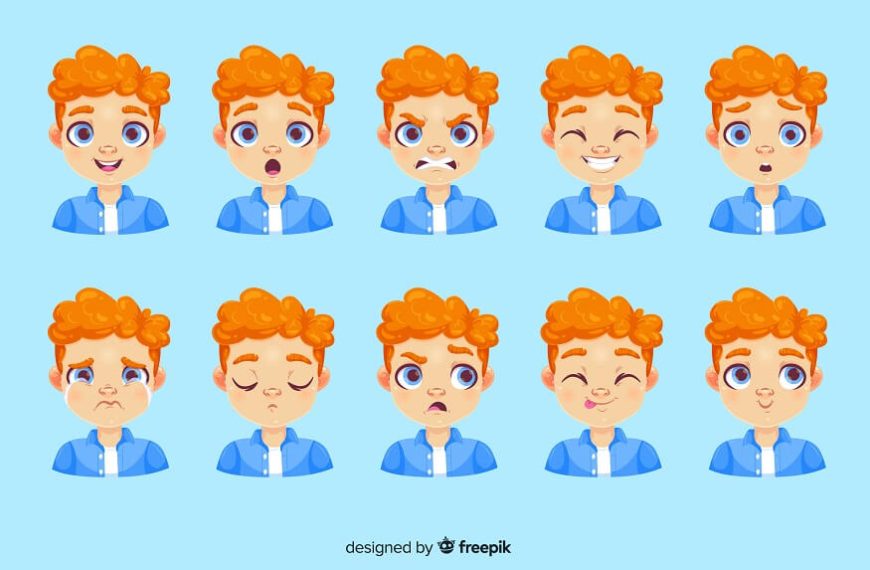As toddlers begin to navigate the world around them, they encounter a myriad of emotions that can be both exciting and overwhelming. These little ones, with their pure hearts and curious minds, are discovering the vast spectrum of human feelings. From joy and curiosity to frustration and sadness, toddlers experience emotions in their own unique and often unpredictable ways. They giggle with delight at a funny face, stomp their feet in anger when their desires are thwarted, and offer warm hugs when they sense someone’s sadness. These early encounters with emotions set the foundation for their emotional intelligence and shape how they understand and express themselves in the years to come. Parents and other carers have the amazing opportunity to watch and support toddlers on this amazing journey of discovery, helping them learn how to traverse the complicated emotional landscape with love, empathy, and patience.
We’ll go into the concept of what emotions are, fascinating information about them, and useful strategies for raising and developing your child’s emotional intelligence in this detailed guide.
Unveiling the World of what is emotion.
In the simplest terms, emotions are the diverse range of feelings we experience every day. For toddlers, grasping these emotions is like learning about different colours for the first time. They may not always comprehend why they feel a certain way, but this is where our guidance becomes essential. Let’s unravel this emotional mystery together.
Understanding emotions is a vital aspect of a toddler’s developmental journey. It involves recognizing and comprehending the various feelings they experience, from the joy of play to the frustration of limitations. As parents, fostering this understanding lays the foundation for effective communication and emotional well-being.
Fascinating Facts About Emotions
Before we embark on teaching children about emotions, it’s essential to appreciate some intriguing facts about emotions. Emotions are a natural part of being human, akin to the ever-changing flow of a river. They fluctuate, much like the ups and downs of a river. It is important to recognize that there are no “good” or “bad” feelings. Each emotion serves a purpose – happiness brings joy, sadness helps process loss, anger acts as a protector, and excitement fuels our sense of adventure. These facts lay the foundation for your toddler to embrace the rich tapestry of their emotional world.
Exploring the depths of emotions involves acknowledging their complexity. It’s not just about recognizing happiness or sadness but understanding the subtleties within each emotion. This nuanced understanding sets the stage for emotional intelligence, a valuable skill that aids in navigating life’s varied emotional landscapes.
Teaching Children About Emotions: A Guiding Hand
As parents, we play a pivotal role in guiding our toddlers through the labyrinth of emotions, demonstrating how to teach emotions to kids. Here are simple and effective ways to introduce your little one to the diverse world of feelings:
Guess the Feeling Game:
– Engage in an emotion identification game using pictures or emojis.
– Encourage your toddler to point to happy, sad, or other faces and mimic expressive facial cues.
Storytelling Adventures:
– Explore emotions through age-appropriate books featuring characters with different feelings.
– Pause during the story to discuss the characters’ emotions, fostering empathy and understanding.
Act Out Emotions:
– Play emotional charades by acting out different feelings without speaking.
– Make it a guessing game, enhancing your toddler’s emotional understanding through playful actions.
Create an Emotion Chart:
– Craft a simple chart with drawings representing various feelings.
– Use the chart to discuss recent emotions and healthy ways to express them.
Teaching toddlers about emotions is not just about recognition but also about building a vocabulary to express these feelings. Encouraging verbal communication helps toddlers articulate their emotions, fostering effective expression and communication skills.
Helping Kids How to Control Your Emotions: Practical Strategies
Now, let’s delve into practical strategies to help to control your emotions and navigate toddler
Breathing Breaks:
– Teach the power of deep breaths during calm moments and encourage its use when feeling upset.
– Practise together to make it a familiar technique for emotional regulation.
Fun Games for Calming Down:
– Engage in games centred around identifying and regulating emotions.
– Use playdough to create emotional faces, providing a hands-on approach to emotional expression.
Create a Quiet Corner:
– Establish a cosy corner at home where your toddler can retreat when upset.
– Fill it with comforting items like pillows and favourite toys for a calming effect.
Stick to a Routine:
– Maintain a consistent daily routine to provide stability for your toddler.
– Predictability reduces anxiety, making it easier to handle different emotions.
Navigating Emotional Moments: A Parent’s Guide
Parenting involves being a steady anchor during emotional storms. This section offers practical tips for parents to support and guide toddlers through challenging emotional moments. From acknowledging their feelings to offering comfort, these strategies aim to make parents a reliable source of emotional support for their little ones.
An important part of a toddler’s emotional development is parental engagement in emotional management. It’s about recognizing their signs, confirming their emotions, and offering comfort when required. Creating a safe space where emotions are acknowledged and accepted fosters a trusting parent-child relationship.
Creative Expressions: Art and Emotions
Discover how simple art activities can become a creative outlet for toddlers to express their feelings. Whether it’s finger painting to release pent-up energy or drawing to communicate emotions, these activities foster emotional expression in a fun and engaging way.
Art provides toddlers with a non-verbal platform to express their feelings. The tactile experience of painting or drawing allows them to externalise their internal emotions, promoting a healthy outlet for self-expression. Introducing creative activities at an early age cultivates a positive relationship between emotions and constructive expression.
Building Empathy: Teaching Toddlers to Understand Others’ Emotions
Empathy is a crucial skill that begins to develop in the toddler years. This subheading focuses on activities and conversations that help toddlers develop empathy by understanding and recognizing the emotions of others. Toddlers can learn empathy and sympathy for others around them from their parents through participatory activities, role-playing, and storytelling.
The foundation of positive social interactions is empathy. Teaching toddlers to understand and acknowledge the emotions of others lays the groundwork for meaningful connections. Engaging in activities that highlight the perspectives of different characters in stories or incorporating role-playing scenarios fosters empathy and a sense of interconnectedness.
Teaching toddlers about emotions is a holistic journey of understanding, discovery, and connection. By embracing the spectrum of feelings, validating their authenticity, and providing thoughtful guidance, you empower your little one to navigate the intricate landscape of emotions with confidence. Every smile, every tear, and every giggle contributes to the unique masterpiece of your toddler’s emotional world. With patience, love, and intentional teaching, you lay the groundwork for a lifetime of emotional well-being and resilience.
At EuroKids, they care about making sure little kids learn about emotions in a fun and engaging way. They use games, stories, and creative activities to teach toddlers about their feelings and how to understand what others might be feeling. From the perspective of EuroKids, education should focus on fostering children’s happiness and kindness as well as helping them learn their letters and numbers. They ensure that each day is an educational journey in which young children not only explore their surroundings but also learn how to manage their emotions and form compassionate relationships with others.
















